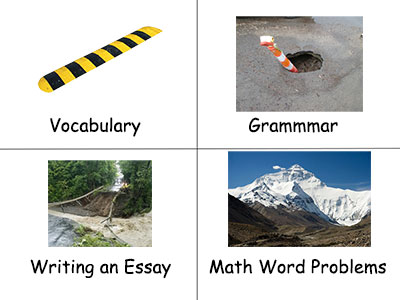
There it is again. You’re reading a newspaper or magazine, an article about a legal dispute, perhaps, with the two sides of an argument coming together with a trusted mediator, and you see one of those phrases that fills you with fleeting doubt: “a disinterested party.” You’ve seen it often enough that you’ve kind of figured out what it means, right? It’s someone who can make a fair decision because they don’t favor one side or the other.
Get a free sample proofread and edit for your English document.
Two professional proofreaders will proofread and edit your English document.
But the heck if you know why it means that. If someone is disinterested, wouldn’t that imply that they haven’t been paying attention? How can you decide who’s right if you don’t know anything about the argument?
There are many English words that give us these little occasions of uncertainty. If we think of reading as a journey toward understanding, these commonly confused words are road hazards. Some are speed bumps, slowing your progress; some are potholes, giving you a sudden jolt; and some are washed-out bridges, forcing you to backtrack or even ending your journey altogether. Good overall reading comprehension smooths the pavement a bit, but even the best-educated find themselves caught off guard by a rumble strip now and then.

The most insidious thing is that most of us never fill in these potholes in our vocabulary. You see “disinterested,” and it slows you down. Maybe you should grab a dictionary and look it up. But no; you’re eager to keep moving, and as you read on you figure you’ve got the gist (if not the exact meaning) from context. And so you plow forward, your moment of incomprehension forgotten, until the next time you see the word “disinterested” and get flummoxed all over again.
Here’s what’s happening. Pretty much all English words (especially the most-common ones) have multiple meanings, the distinctions between which may be obvious or subtle. Usually, as we decode written or spoken language, we determine which definition applies in any given instance using contextual clues: the other words in the sentence, the topic of the passage, even our familiarity with the stylistic idiosyncrasies of a particular author.
This decoding is a remarkably complex process, but most native speakers do it automatically, without conscious effort. When we hit a speed bump in our reading comprehension, as when we get two particular words mixed up or are simply surprised by a seldom-seen word, our confusion very often arises from seeing a familiar term used in a sense that we did not expect.
So it is with “disinterested.” We know what “interested” means, at least in the sense in which we use it most often: the state of having one’s attention captured or attracted by something. For a synonym, you might pick “fascinated” or “engaged” or “intrigued.” Add the negative prefix dis–, and you’ve got a lack of interest, or something stronger, maybe a sort of negative interest? Words like “dislike” or “distaste” aren’t neutral or indifferent; they’re actively hostile. Is “disinterested” the same way, being actively bored or repelled by something? How is that a desirable quality in a mediator?
The solution lies in an alternate meaning of “interest.” The most common secondary meaning, “additional money included in the repayment of a loan,” does not apply here, of course; but it does point us in the right direction by reminding us that in addition to connoting mental or emotional engagement, “interest” can also refer to a financial entanglement. It’s in this sense of a material investment that we refer to “business interests” or “special interest groups.”
In this light, the use of “disinterested” to mean fair or impartial makes more sense. The person in question has no material stake in the outcome but is not necessarily disengaged from the dispute on an intellectual or emotional level. It is possible, in other words, to be intensely interested in the situation (in the sense of giving it one’s full attention) while simultaneously being disinterested (in the sense of having no bias or entanglement).
Unfortunately, the quirks of English vocabulary can make this distinction hazy. The adjective “disinterested” can connote either indifference or impartiality; “uninterested,” though, means only the former. Using “disinterested” only in its specialized sense and “uninterested” in all other cases will help distinguish between the two concepts in your writing. On the noun side, sadly, “disinterest” is the only available form to indicate either an absence of concern (what we might call intellectual interest) or an absence of selfish motive (i.e., material interest). A roundabout construction like “lack of interest” or even “non-interest” might be useful for referring to the latter.
Jack F.
Get a free sample proofread and edit for your English document.
Two professional proofreaders will proofread and edit your English document.
Get a free sample proofread and edit for your document.
Two professional proofreaders will proofread and edit your document.
We will get your free sample back in three to six hours!